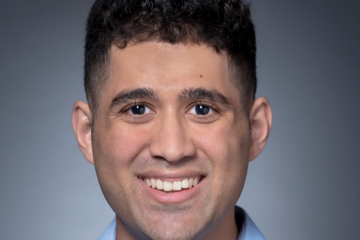
Developing AI systems for healthcare equity
Hammaad Adam is a doctoral student in the IDSS Social and Engineering Systems program. His research focuses on questions at the intersection of machine learning and healthcare equity. Hammaad’s current work is driven by two goals: identifying racial and other disparities in healthcare using statistical and causal inference, and investigating novel ways to use machine learning to create more equitable systems. He is a part of the IDSS Research Initiative on Combatting Systemic Racism (ICSR) healthcare team.
Previously, Hammaad earned an MS in Data Science from Columbia University and a BS in Applied Mathematics from Yale.
Which ICSR project team are you on and what are you working on with them?
My current work falls under ICSR’s healthcare vertical. There are a large number of well-established inequities in the US healthcare system that adversely affect women and communities of color. Such disparities are seen throughout the care pipeline, from diagnosis to clinical treatment to hospital care. My work with the ICSR investigates inequity in a variety of healthcare settings, and aims to develop machine learning methods to create fairer systems.
A new project that I’m especially excited about focuses on organ transplantation. While prior research has focused on designing better organ transplant allocation systems, much less work has studied ways to improve the procurement process of organs from deceased donors. Improving organ recovery practices could lead to more than 7000 additional transplants per year; many of these gains would directly impact underserved communities, who are on average less likely to be medically suitable for currently available organs. We’re currently working with seven organ procurement organizations (OPOs) and the Federation of American Scientists (FAS) to improve the efficiency and equity in this process using state-of-the-art tools from econometrics and machine learning. I’m incredibly grateful to have the opportunity to work on a project that could create such tangible, real-world impact.
How does this ICSR work tie in to your research as an SES student?
My work with the ICSR is one and the same as my research as an SES student, as developing AI systems for healthcare equity will form the bulk of my dissertation research. While my interest in AI equity started independently of the ICSR, IDSS’ focus on systemic racism has helped me channel my efforts into structured, rewarding projects. The ICSR connected me with my current advisor, Professor Marzyeh Ghassemi, and has provided support for my research both in terms of funding and an intellectual community.
What knowledge and disciplines does your research bring together? What kind of impact would you like to make?
My work combines a few different disciplines. From a methods perspective, I use techniques from causal inference, statistics, and machine learning to audit existing disparities and find ways to mitigate their impact. Doing impactful work in this field also requires deep domain knowledge; collaborating with physicians, policy-makers, and other experts has helped ensure that our work addresses real-world concerns. IDSS’ interdisciplinary PhD curriculum has provided excellent opportunities to gain the relevant background, both in methods and domain. Overall, I hope that my research can directly be used to create more equitable systems in healthcare.



